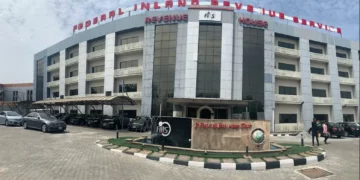Market groups in Kaduna have raised concerns about lack of infrastructure in some markets which they said is affecting tax compliance in the market.
The groups raised the concern at a two-day town hall meeting and capacity building workshop in Kaduna organised by Tax Justice & Governance Platform (TJ&GP) supported by Christian Aid.
They highlighted insecurity, sanitation and activities of Kaduna State Traffic Law Enforcement Agency (KASTLEA) as part of the challenges facing businesses in the State.
The groups also called for the implementation of ‘Tax-for-Service’ agreements to improve transparency, service delivery, and tax compliance across the State’s markets.
The president, Market Women Association, Hajia Hadiza Abdulazeez stressed the need for tax awareness among market women.
She noted that building infrastructure like toilets, boreholes and others will improve tax compliance in the State.
The director of Planning at the Kaduna Ministry for Local Government and Chieftaincy Affairs, Mohammed Adamu stressed the need to revisit the revenue collection structure at the local government level.
According to Adamu, Once local governments are not involved in revenue collection, they cannot be expected to provide essential market infrastructure like toilets, roads, and greenery.
The Local Government coordinator at the Kaduna State Internal Revenue Service, Richard Bature acknowledged challenges in market revenue collection and reiterated the service’s commitment to addressing them.
“Implementation of the tax law must consider the human aspect. Where market infrastructure is lacking, compliance will remain low. We’re currently reviewing the tax law and believe some of the issues raised here can be addressed through amendments”.
Earlier in his welcome remarks, the Kaduna Coordinator of the Tax Justice & Governance Platform, Simeon Olatunde noted that the objective of the workshop was to strengthen the collaborative capacity of Civil Society Organizations (CSOs) and market groups to engage with tax authorities on tax-for-service agreement.
He added that the engagement was also to enhance understanding of tax policies and role of tax-for-service agreement in promoting accountability and service delivery.
The executive director, Civil Society Legislative Advocacy Centre (CISLAC), Auwal Musa Rafsanjani who was represented by program gender officer Asaolu Dolapo Dorcas stressed the need for accountability for the revenue generated, adding that people want to see service delivery for the taxes that they pay.




